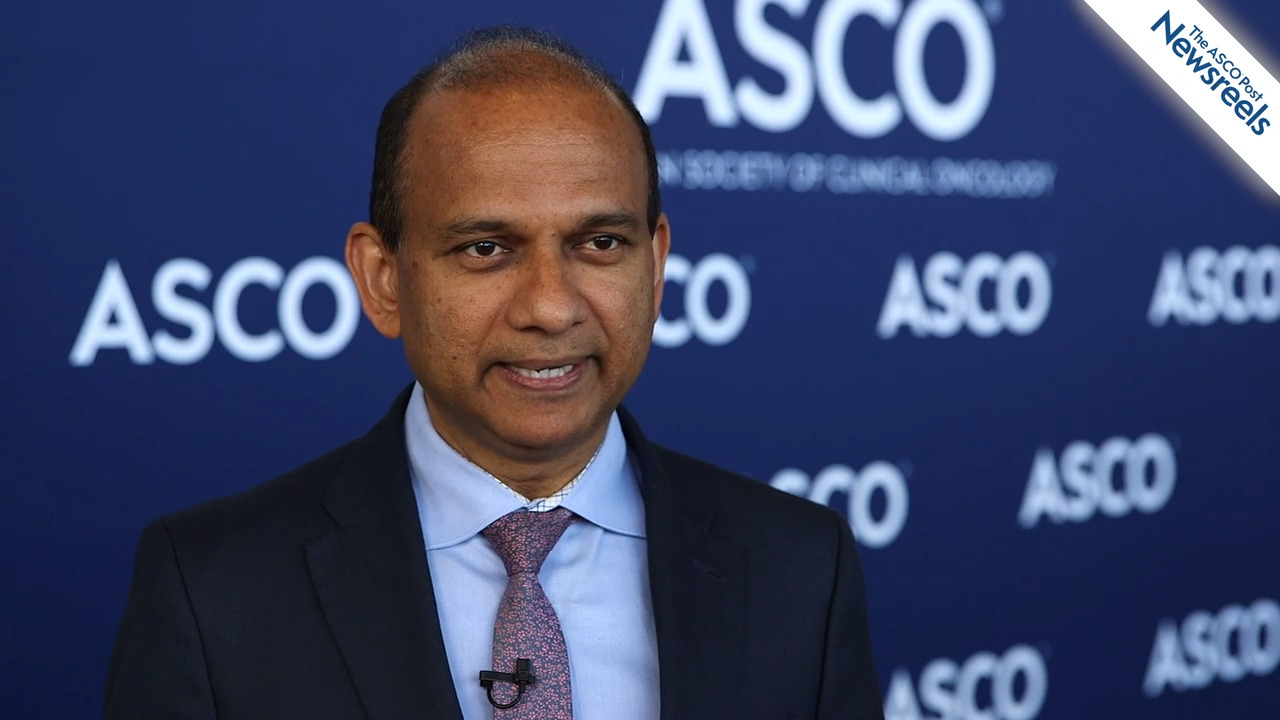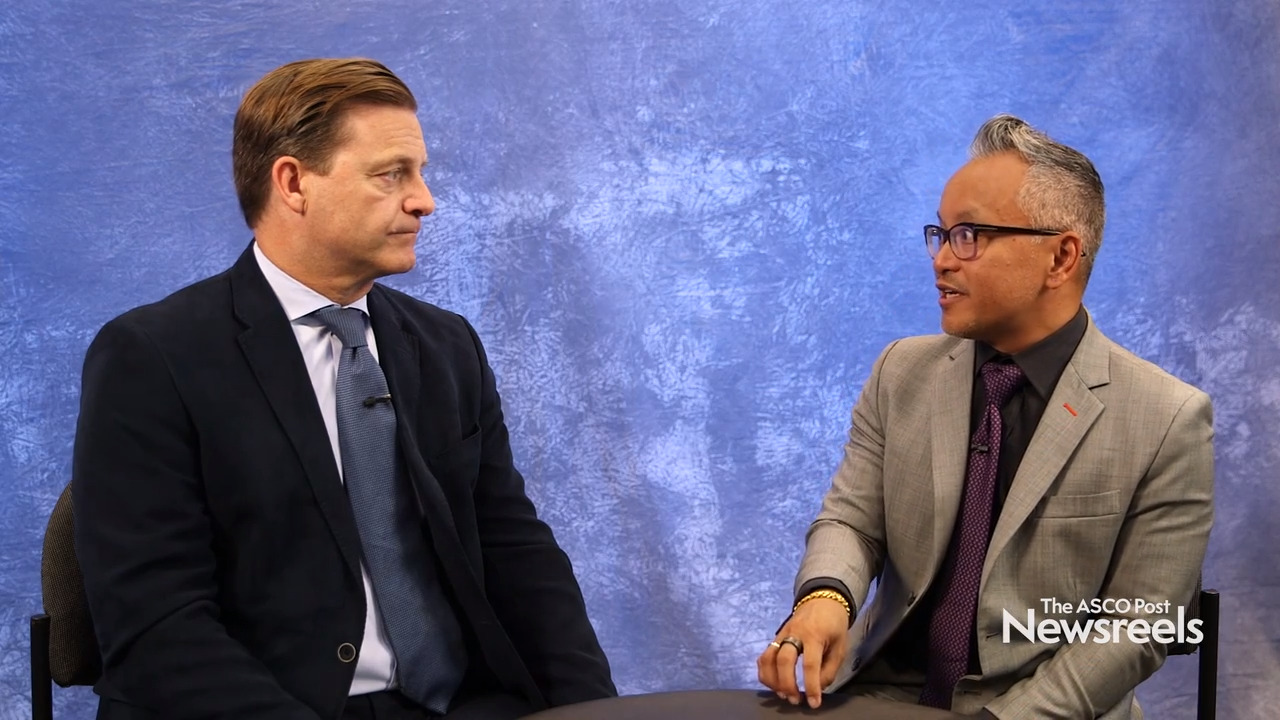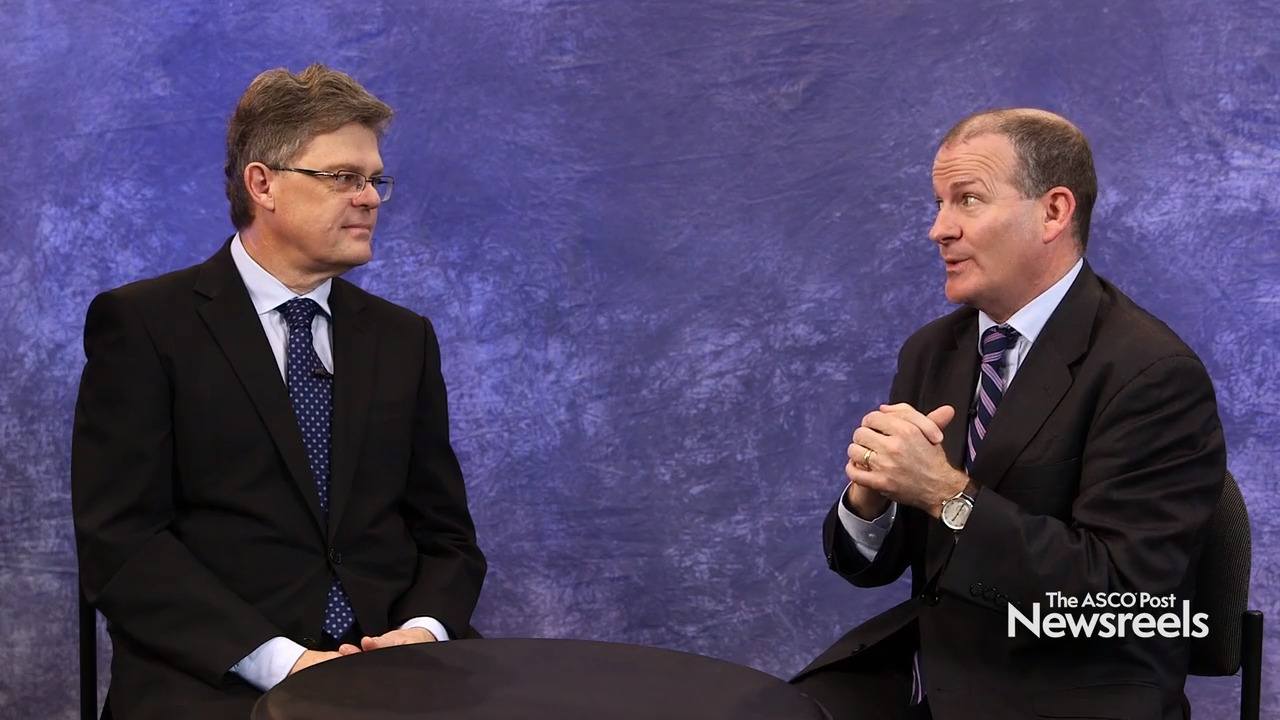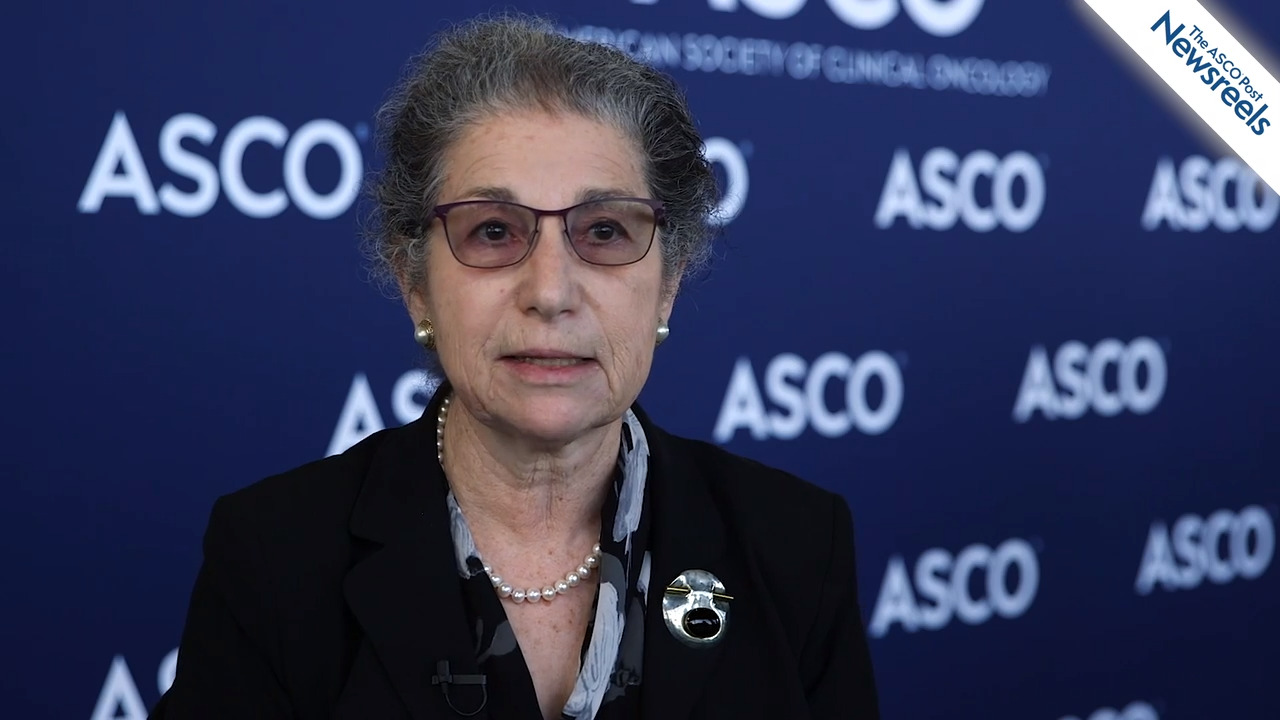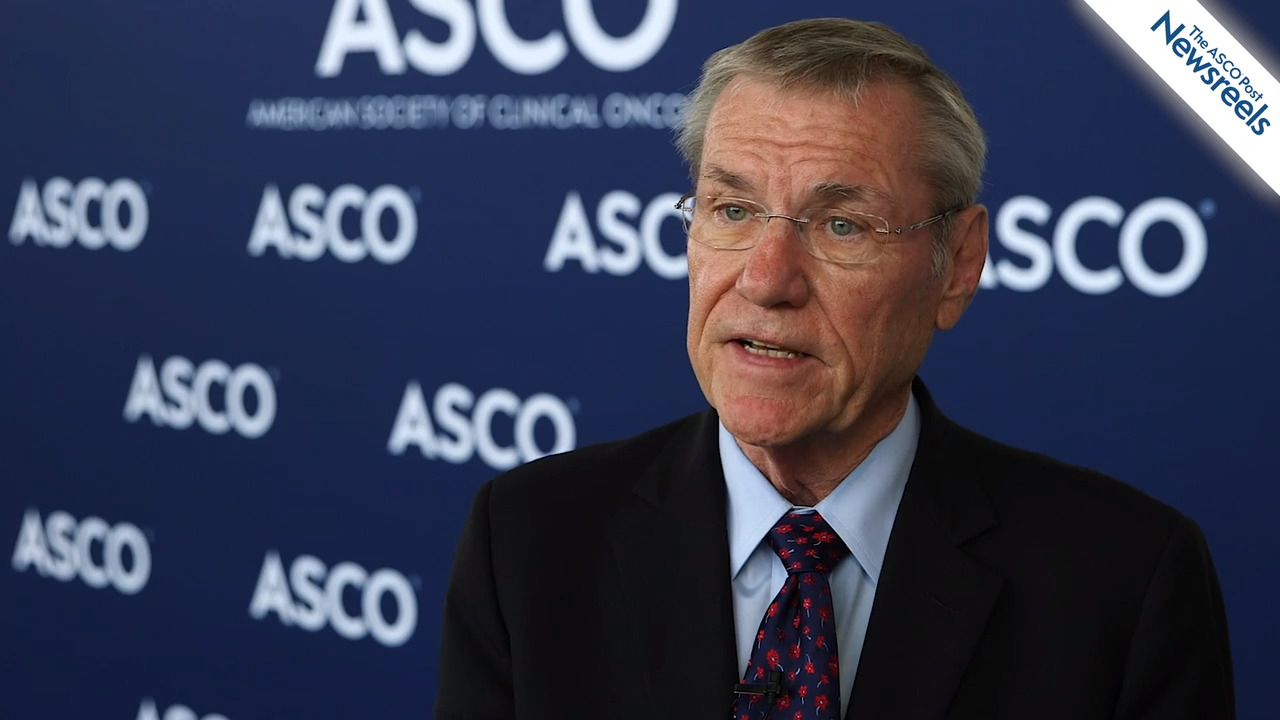Joseph A. Sparano, MD, on Early Breast Cancer: Predicting Prognosis and Treatment Benefit in TAILORx
2019 ASCO Annual Meeting
Joseph A. Sparano, MD, of the Montefiore Medical Center and Albert Einstein Cancer Center, discusses how clinical risk stratification provides additional prognostic information to the 21-gene recurrence score and may be used to identify premenopausal women for more effective antiestrogen therapy (Abstract 503).
Jame Abraham, MD, of the Cleveland Clinic, provides commentary on the NALA study findings on neratinib plus capecitabine vs lapatinib plus capecitabine in patients previously treated with HER2-positive metastatic breast cancer (Abstract 1002).
Don S. Dizon, MD, of the Lifespan Cancer Institute, and Matthew A. Powell, MD, of Washington University School of Medicine, discuss phase III findings on paclitaxel plus carboplatin vs paclitaxel plus ifosfamide in chemotherapy-naive patients with stages I to IV, persistent or recurrent carcinosarcoma of the uterus or ovaries (Abstract 5500).
Ian D. Davis, MBBS, PhD, of Monash University and Eastern Health, and Christopher Sweeney, MBBS, of Dana-Farber Cancer Institute, discuss phase III findings from their international trial on adding enzalutamide as a new treatment option with testosterone suppression for metastatic hormone-sensitive prostate cancer (Abstract LBA2).
Patricia A. Ganz, MD, of NRG Oncology and Jonsson Comprehensive Cancer Center at UCLA, discusses the NRG/NSABP phase III findings, which showed that partial-breast irradiation was more convenient and resulted in less fatigue but slightly poorer cosmesis at 36 months in patients who did not receive chemotherapy (Abstract 508).
Rowan T. Chlebowski, MD, PhD, of the Los Angeles BioMedical Research Institute at Harbor-UCLA Medical Center, discusses study findings from nearly 2 decades of data, which showed a 21% reduction in deaths from breast cancer among postmenopausal women who adhered to a low-fat diet (Abstract 520).
